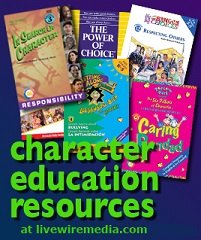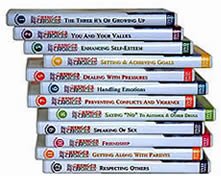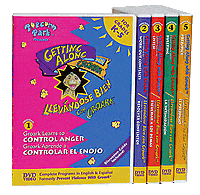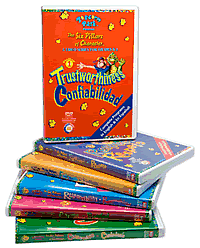Ethical Dilemmas for Classroom Discussion
THE DAILY DILEMMA
by Charis Denison
![]() This is #28 of an ongoing series of moral and ethical discussion starters from the case files of Charis Denison. These situations are very real and are changed monthly (almost). Please try them out with your students and share your results with us. You can find the complete archive of dilemmas here.
This is #28 of an ongoing series of moral and ethical discussion starters from the case files of Charis Denison. These situations are very real and are changed monthly (almost). Please try them out with your students and share your results with us. You can find the complete archive of dilemmas here.
THE SITUATION
(present this to your students)
![]()
“There are certain times,” thought Lisa, “when you know things have gone from really bad to out of control.” The party had started out fine, like they always do. And things got a little crazy, like they always do. But Lisa’s friend Sarah, a small framed senior had had way too much alcohol and had been throwing up for an hour while going in and out of consciousness. There were no adults around and they were miles from the nearest town, at somebody’s vacation home.
“We need to call 911 or take Sarah to the hospital now!” Lisa said to the group of five friends in the bathroom with Sarah.
“No way,” one of the girls said. “We’d be in so much trouble. My parents cannot know I’m even here! If they find out, this will be my last time out of the house before leaving for college!”
Lisa felt more scared than ever before in her life. She felt in her gut that Sarah was worse off than any of them could deal with, and if they didn’t get help she might even die. But what if she was wrong? What if everything gets better in an hour and everyone hates her for making a huge deal out of just a “bad situation” at a party?
The girls continued arguing. Three of them agreed with Lisa. Two of them were adamant about dealing with it on their own. Lisa felt like time was running out. What should she do?
For an archive of previous dilemmas, click here.
© Copyright Elkind+Sweet Communications, Inc. All rights are reserved. The material in this website is intended for non-commercial educational use. It may not be republished on the web or anywhere else without written permission of the publisher. Please see our terms of use.
NOTES FOR THE FACILITATOR
(this is for you)
This case represents the classic stereotype and a parent’s worst nightmare. Those of us who work with teens hear modified versions of this story more times than the average person might think. It demonstrates how teenagers need constant reminders about calling for help when things become dangerous. They must develop the tools to recognize danger and to resist the pressure to downplay that danger when the consequences could change their lives forever. It is still mortifying to me to hear my students talk about how often they were in a party situation over their heads and simply prayed it would work out all right. And then, of course, there are times when it doesn’t, and we all have had the awful experience of witnessing a few of those as well.
This case is important because, while I feel teenagers are far more capable than our culture gives them credit for, most often they lack the ability when truly frightened to think “long term.” They simply hit the “fight or flight” primal part of the brain and see only the immediate consequences, not the longer term ones or the bigger picture. This is how three girls can argue so vehemently about how they can’t tell anyone because they will lose their freedom, their friend will get in trouble, their peer group will judge them. They cannot (in most cases) begin to grasp the weight of how the death of a friend will trump all other consequences in their lives.
It is crucial that we talk often with our students about the consequences of certain choices. It is our job as adults, educators, youth workers, to publicly reward and validate actions by young people that honor the need to ask for help when they don’t know how to handle something, or when their gut tells them something is wrong. This does two things: 1) it gives quiet and solid permission to the kid who knows what he/she should do but is scared of actually doing it, and 2) it tells kids who might resist asking for help what’s the right thing to do so that when that primal “fight or flight” feeling occurs they have a conscious memory of someone telling them what they must do.
Kids need permission and practice in making these kinds of ethical choices regularly, not just after something awful happens in their community.
![]() DISCUSSION QUESTIONS
DISCUSSION QUESTIONS
(also, debate topics, writing assignments, etc.)
-
Which side do you think you would be on in the argument between the girls?
-
What do think Lisa was most scared about in this situation? Do you relate to what she was feeling? How/how not?
-
Have you or anyone you know been in a situation similar to Lisa’s or Sarah’s?
-
What are some of the obstacles you might face when you feel like you should seek help in a dangerous situation?
-
How many of you feel like you have someone you could call if you were in a situation like Lisa’s?
-
Have your parents or someone you trust ever talked through possible situations with you and discussed a possible plan for each one? Would you want them to? Why/why not?
-
What would need to happen in a situation like this for you to feel like it was time to call 911 or seek help?
-
One of Lisa’s fears was that she would be laughed at or hated if she called for help or took Sarah to the hospital. Do you think she was right about that? Have you ever known that to happen to someone?
-
How much ethical responsibility should each member have in this situation? Sarah? Lisa? Her other friends? The parents who own the house?
© Copyright Elkind+Sweet Communications, Inc. All rights are reserved. The material in this website is intended for non-commercial educational use. It may not be republished on the web or anywhere else without written permission of the publisher. Please see our terms of use.
ETC.
 For some excellent character education videos and DVD’s that will give your students a lot to think about, talk about, and write about, visit Live Wire Media. For some excellent character education videos and DVD’s that will give your students a lot to think about, talk about, and write about, visit Live Wire Media. |

![]() haris (KAIR-iss) Denison, founder of Prajna Consulting, is an expert in Community Involvement, Human Development, and Ethics. She has built her experience primarily by working with schools and non-profits for the past 15 years.
haris (KAIR-iss) Denison, founder of Prajna Consulting, is an expert in Community Involvement, Human Development, and Ethics. She has built her experience primarily by working with schools and non-profits for the past 15 years.
After initially teaching middle and high school English and Creative Writing, Charis began to develop curricula and publish articles related to social justice, ethics, human development, community involvement, and experiential education. She has received national recognition for her work in those fields, as well as for her community-based work with American teens and Tibetan refugees in Central Asia.
Charis co-wrote Tolerance for Others, a middle school human development text, with Leni Wildflower. She currently works as the national Service-Learning consultant for the Durango Institute for Co-Curricular Education.
Charis also teaches at Marin Academy in San Rafael, California, and runs Prajna Consulting. Through Prajna she consults with schools, parents, students, and businesses both organizationally and individually. Charis also facilitates workshops and speaks on a wide variety of topics.
Charis can be reached at:
cdenison@prajnaconsulting.com
Live Wire Media, our sister site, offers award-winning, research-based video DVDs, curriculum modules, interactive software, and other helpful tools.
6 DVDs
for Grades 4-8
The Trust Connection
The Respect Connection
The Responsibility Connection
The Fairness Connection
The Caring Connection
The Citizenship Connection
![]()
10 DVDs
for Grades 7-12
Trustworthiness
Respect
Responsibility
Fairness
Caring
Citizenship
Honesty
Courage
Diligence
Integrity
![]()
10 DVDs
for Grades K-5
Cooperation
Being Responsible
Dealing with Feelings
Saying No
Doing the Right Thing
Dealing with Disappointment
Appreciating Yourself
Asking for Help
Being Friends
Resolving Conflicts
![]()
Big Changes,
Big Choices

12 DVDs
for Grades 5-9
The 3 R’s of Growing Up
You and Your Values
Enhancing Self Esteem
Setting & Achieving Goals
Dealing with Pressures
Handling Emotions
Preventing Conflicts & Violence
Saying No to Alcohol/Drugs
Speaking of Sex
Friendship
Getting Along with Parents
Respecting Others
![]()
5 DVDs
for Grades K-5
Controlling Anger
Working Out Conflicts
Being Good Listeners
Bullying & Teasing
Prejudice & Respect
![]()
6 DVDs
for Grades K-5
Trustworthiness
Respect
Responsibility
Fairness
Caring
Citizenship
![]()
© Copyright Elkind+Sweet Communications, Inc. All rights are reserved. The material in this website is intended for non-commercial educational use. It may not be republished on the web or anywhere else without written permission of the publisher. Please see our terms of use.





